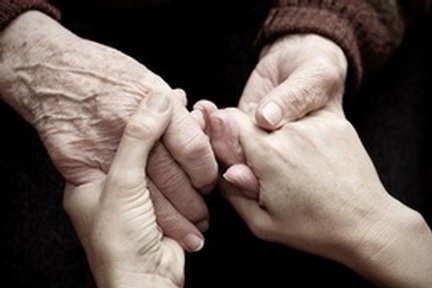UK in 2030: Robots take our jobs and ageing population grows by a third
By 2030, the number of people aged 65 and over will have grown by a third, up to two-thirds of jobs could be done by robots and the gap between rich and poor will have grown even wider, according to the think tank IPPR.

Its report ‘Future Proof’ claims the Brexit negotiations will ‘fire the starting gun on the decade’ so understanding the changes that will take place in the future are key for any talks.
The think tank predicts the UK population will age sharply and says that by the mid-2020s, the adult social care funding gap will hit £13bn.
Up to two-thirds of current jobs which equates to 15 million, are at risk of automation and the income of high-income households is forecast to rise 11 times faster than for low income households in the 2020s. Climate change, biodiversity degradation, and resource depletion mean we will push the Earth’s natural systems to its limits.
Brexit
Mathew Lawrence, IPPR research fellow and report author said: “By 2030, the effects of Brexit combined with a wave of economic, social and technological change will reshape the UK, in often quite radical ways.
“In the face of this, a politics of nostalgia, institutional conservatism and a rear guard defence of the institutions of 20th century social democracy will be inadequate. For progressives, such a strategy will not be robust enough to mitigate against growing insecurity, ambitious enough to reform Britain’s economic model, nor sufficiently innovative to deliver deeper social and political transformation. They would be left defending sand castles against the tide of history.”
The UK currently has the richest region in Northern Europe but also nine of the 10 poorest regions. This gap between rich and poor is set to grow even more, says the think tank.
Mr Lawrence added that to counter all this - “Britain’s progressives should be ambitious, seeking to shape the direction of technological and social change. We must build a ‘high energy’ democracy that accelerates meaningful democratic experimentation at a national, city and local level, and also in the marketplace by increasing everyone’s say over corporate governance, ownership and power.”
Economic power will move towards Asia
The think tank also predicts the economic world order will become more fragile as globalisation evolves, trade patterns shift, and economic power gravitates toward Asia.
At the same time, developed economies are likely to struggle to escape conditions of secular stagnation. The institutions governing the global economy are likely to come under intense pressure as the American hegemony that underpinned the postwar international order fades and the Global South rises in economic and geopolitical importance, says the report.
The IPPR predicts that the economic implications of Brexit are likely to put the country on a lower growth and lower investment trajectory which will lead to public finances worsening and migration becoming more controlled.
Improvements in new technologies are expected to radically transform social and economic life. These changes have the potential to create an era of widespread abundance, or a second machine age that radically concentrates economic power, according to the report.
What will it mean to be human?
Improving health technologies, space travel, plus technological and social transformation will increasingly change what it means to be human.
Mr Lawrence says this will “require building a new ‘common sense’ that deepens and broadens economic and social freedom for everyone, not just a privileged few.
“This will require collectively shaping social, economic and technological change to extend democracy and deepen human flourishing, creating institutions that harness the growing power of technology to promote shared abundance, and building a common life that rewards purpose and kindness.”
He quotes inventor and visionary Richard Buckminster Fuller who said we need to be “architects of the future, not its victims”.
To read the report Future Proof go to http://www.ippr.org/publications/future-proof-britain-in-the-2020s
Latest News Analysis
 04-Sep-19
Extra £1.5 billion announced for social care in Chancellor's Spending Review
04-Sep-19
Extra £1.5 billion announced for social care in Chancellor's Spending Review
 02-Jul-19
Department of Health forced to rethink care homes' nursing rates after legal challenge
02-Jul-19
Department of Health forced to rethink care homes' nursing rates after legal challenge
 18-Jun-19
Overnight care workers forced to sleep in offices and told 'bring your own bedding'
18-Jun-19
Overnight care workers forced to sleep in offices and told 'bring your own bedding'
 14-Jun-19
Back in the closet: Third of care home staff have had no LGBT+ awareness training
14-Jun-19
Back in the closet: Third of care home staff have had no LGBT+ awareness training
 11-Jun-19
PM candidates on social care: Rory Stewart calls fixing care an 'unfinished revolution'
11-Jun-19
PM candidates on social care: Rory Stewart calls fixing care an 'unfinished revolution'